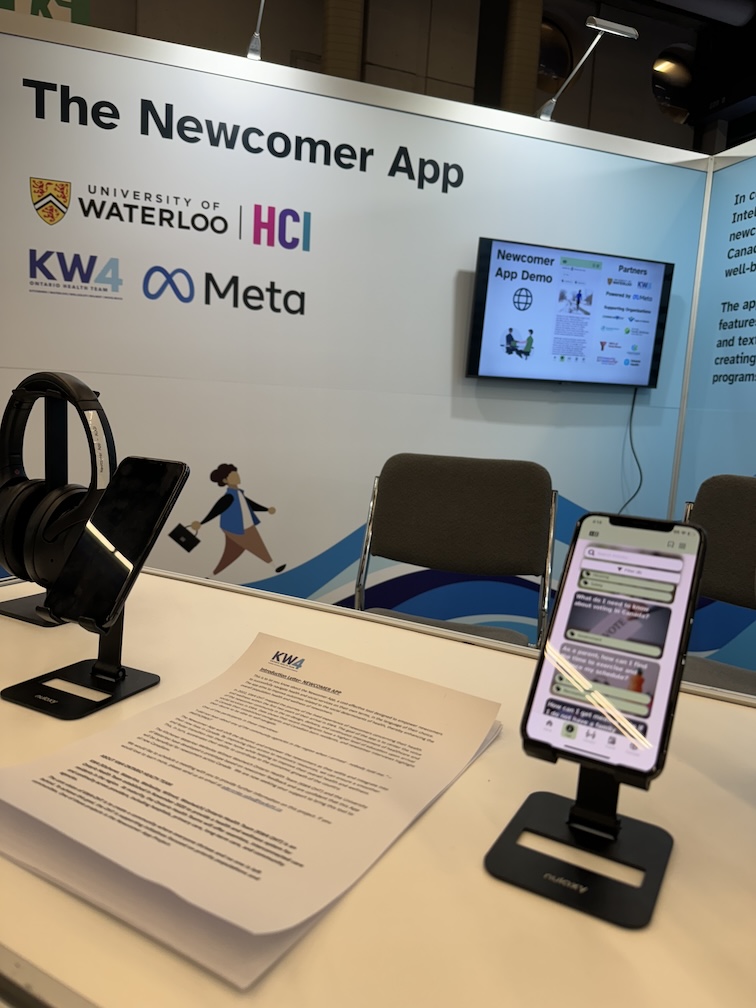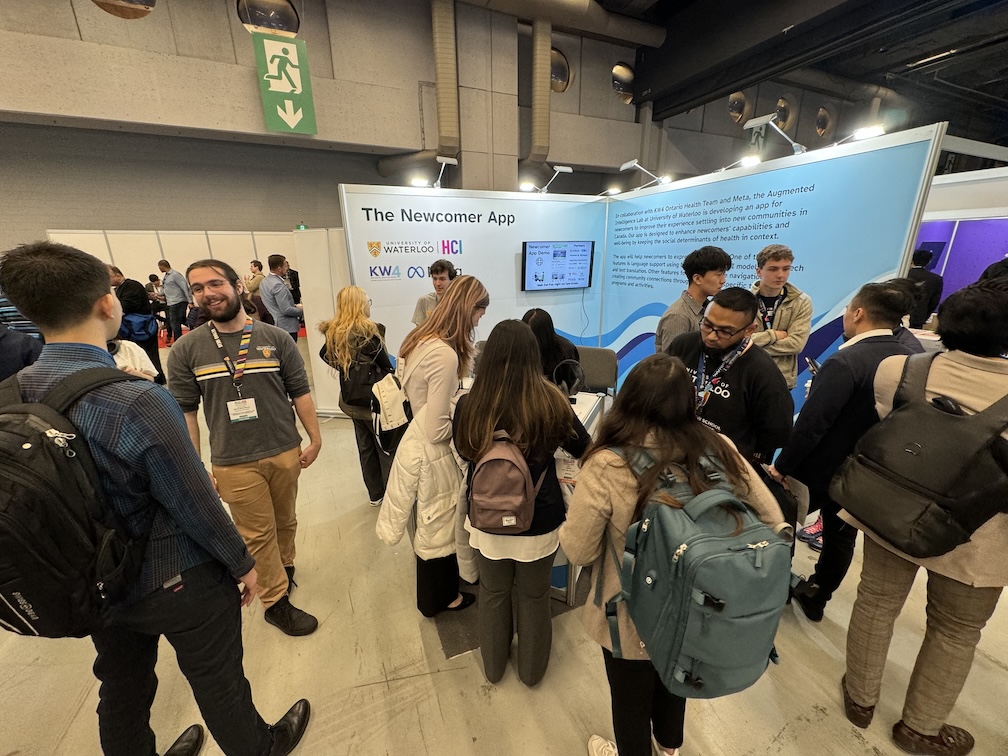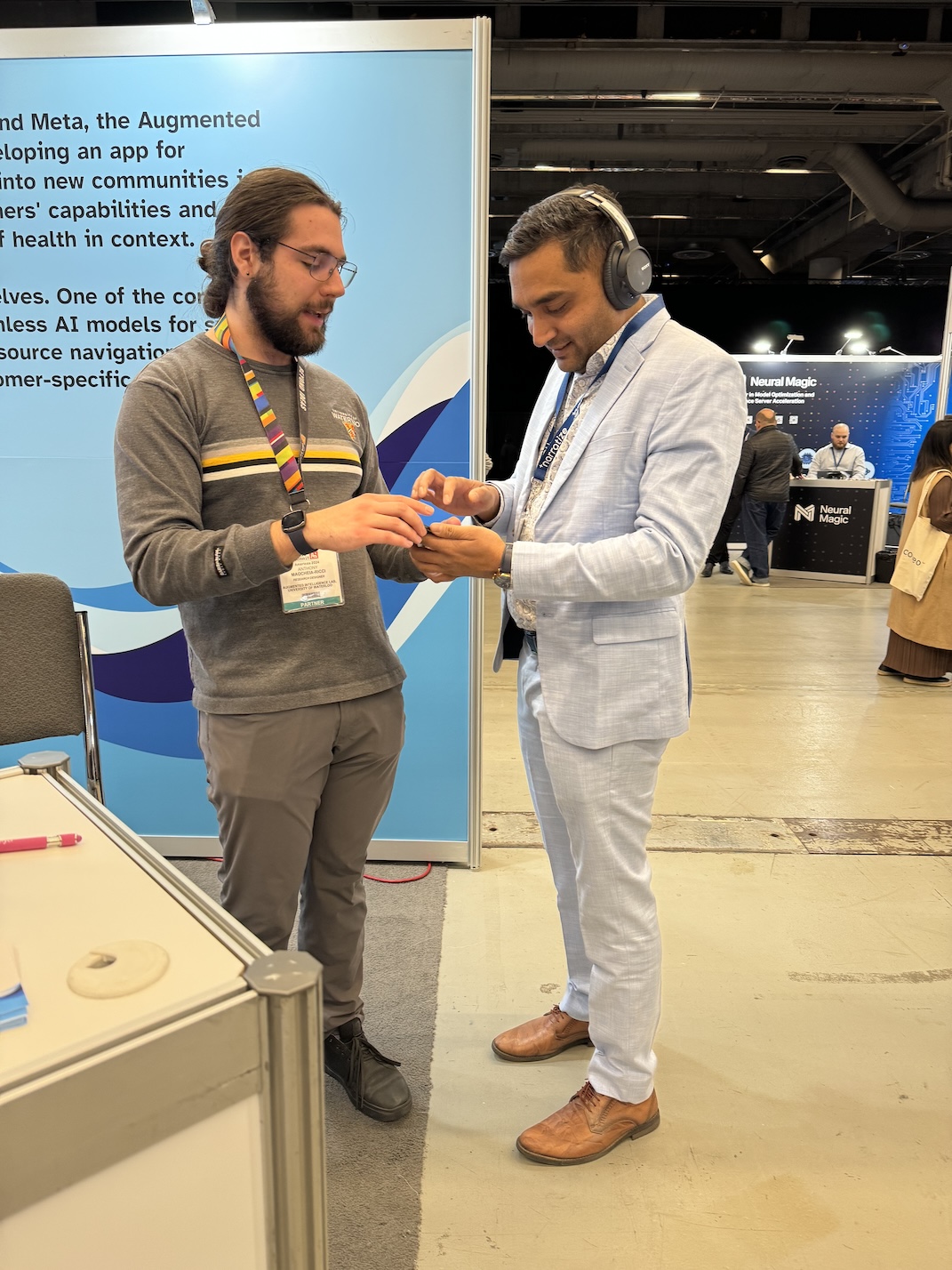News




October 2025
Launch of the Future of Work Institute and Google Partnership

On Oct 1, we had a launch event to celebrate the newly announced Future of Work Institute and the Google Research Chair in the Future of Work and Learning, both led by Prof Law. Prof. Law is working with Google to launch the Futures Lab, an AI+UX prototyping workshop where students work in multi-disciplinary teams to envision new learning tools through prototyping, as well as conduct research on AI-facilitated learning.
April 2024
Debut of the Newcomer App at the World Summit AI Conference in Montreal.



Our team from the Augmented Intelligence Lab, including Prof. Edith Law, Nabil Bin Hannan (Ph.D. student), Namiko Huynh (Project Manager), Anthony Maocheia-Ricci, Maggie Guo (Designer of Newcomer app), Alex Lu, Alex Rus and Weldon Scott (Developer of Newcomer app) presented the Newcomer App at the World Summit AI Conference in Montreal. Over the two days, our booth was visited by hundreds of attendees with a variety of background.
June 2022
Congrats to Sangho Suh for his publication at UIST 2022 and for receiving a Best Paper Honorable Mention at DIS 2022.
Sangho's paper, title "CodeToon: Authoring Tool for Creating Comics from Code with Story Ideation and Automatic Comic Generation", has been accepted to UIST 2022. CodeToon is an authoring tool for generating coding strips, i.e., comics that correspond to code, which can be used to illustrate and teach abstract computer science concepts. This authoring tool has been adapted to facilitate the explanation of abstract ideas in other domains, e.g., for privacy education. His paper "PrivacyToon: The Design and Evaluation of a Comic-Based Authoring Tool with Creativity Support for Privacy Concepts" received a Best Paper Honorable Mention at DIS 2022.
May 2021
Congrats to Mike Schaekermann for receving the 2020 Cheriton School of Computer Science Dissertation Award and the 2020 CAN-CS Distinguished Dissertation Award!
Mike’s thesis titled, “Human-AI Interaction in the Presence of Ambiguity: From Deliberation-based Labeling to Ambiguity-aware AI,” demonstrated how humans and AI can be partners on ambiguous problems. His thesis argues that some classification problems are irresolvable, and that the act of deliberation, facilitated by the appropriate interfaces, can help to improve the decision process and ultimately the classification labels See the university news release to learn more.